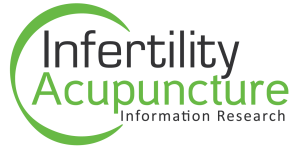Can IVF acupuncture improve live birth rates, aka take home babies?
Despite 20 years of vigorous IVF acupuncture research, further studies are ceaselessly coming in. Browsing our website you will find evidence IVF acupuncture benefits pregnancy or live birth rates. And there are also studies that do not show the effect on pregnancy rates, but highlight other acupunctures’ benefits, like improved embryo quality or better blood flow in the uterus or reduced stress. And sometimes it may seem like it is bit challenging to clearly understand the benefits and draw conclusions on IVF acupuncture. This maybe due to differences study methodologies and due to the variety of protocols used – not all reproductive acupuncture is effective.
If you think that fertility acupuncture evidence is somewhat confusing, here is a study to clear things up.
Our ABORM colleague, Dr Lee Hullender Rubin recently embarked on a mission to provide clarity on the role of acupuncture in IVF treatments. She analysed the two latest and most rigorous systematic reviews and meta-analyses resulting in an insightful overview in her recent study.
Here we present to you a summary of the key findings on how this time-tested therapy can help during your next IVF, based on data from nearly 2000 women.
The the current evidence on the effect of acupuncture on IVF outcomes
1. Compared to no treatment, acupuncture improves IVF outcomes:
- Increases clinical pregnancy rate by 28%–32%
- Boosts ongoing pregnancy rate by 42%
- Ups live birth rate by 30%.
2. An inert control is needed to improve study quality
3. Acupuncture and live births:
Acupuncture more effective for increasing live births in patients with previously failed cycles and IVF clinics with a baseline pregnancy rate <32% (in other words, most IVF clinics in NZ).
4. Factors that can improve the outcomes are:
- More acupuncture treatments
- Treatment focused before and on the day of embryo transfer
- Using a modified Paulus protocol on the day of embryo transfer
Point of Influence?
Augmenting in vitro fertilization (IVF) with acupuncture is a popular adjuvant therapy in the United States, but its influence on IVF birth outcomes remains controversial.
Recent meta-analyses found acupuncture is effective to increase the risk of live births by 30% when it was compared with no treatment in nine trials of 1,980 women.
The efficacy of acupuncture is unclear, however, and confounded by the need for adequate, inert control. This natural therapy does not increase the risk of miscarriage. Additionally, it was 42% more effective to increase live births when women had previously failed a cycle, and the baseline pregnancy rate continues to mediate acupuncture’s effects.
The characteristics of treatment more favourable to improving birth outcomes included more treatments, timing treatments in the period before and on the day of embryo transfer (ET), and using a modified Paulus protocol on the day of ET.
These findings should inform the dosage, timing, and components of this therapy and type of comparator in future trials investigating the effects of acupuncture on IVF outcomes.



